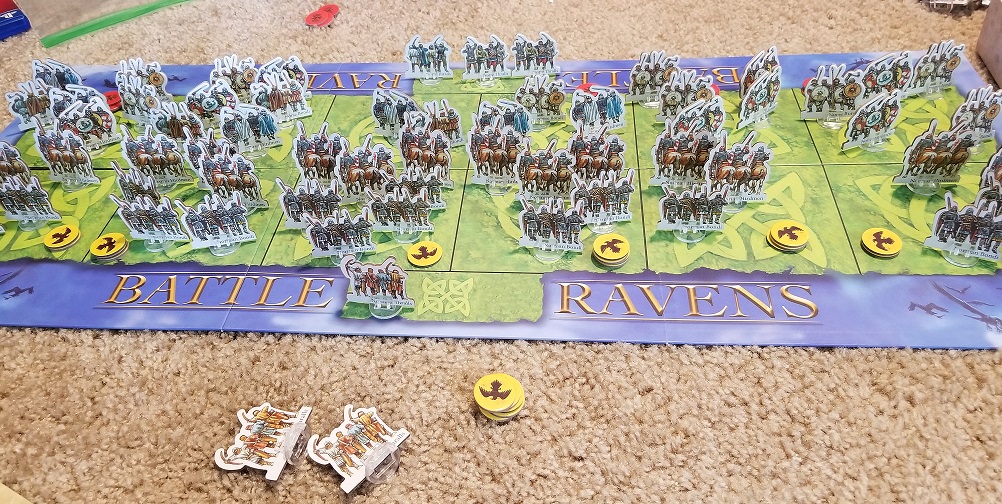
I’m a sucker for “Dark Ages” history. The Roman evacuation of Britain, the Anglo-Saxons, the Vikings, the Norman invasion – the people, the stories, and the myths of this period are more fascinating than anything Hollywood came dream up.
And so when Battle Ravens hit Kickstarter, it didn’t take much convincing for me to back the project. I received the game a couple of weeks ago and was able to get in a couple of games with my daughter recently. The game is advertised as ages 14+, though my daughter (Soon to be twelve.) had no issues picking up the rules and was soon developing her own strategy.
Continue reading Battle Ravens!